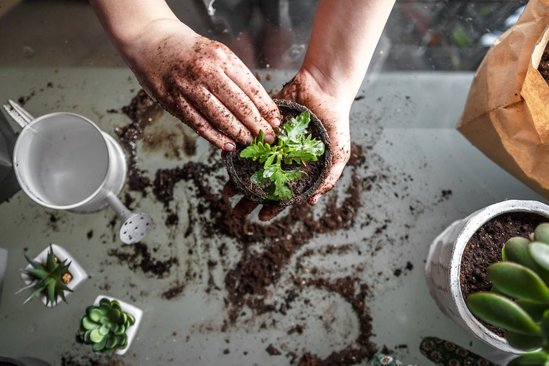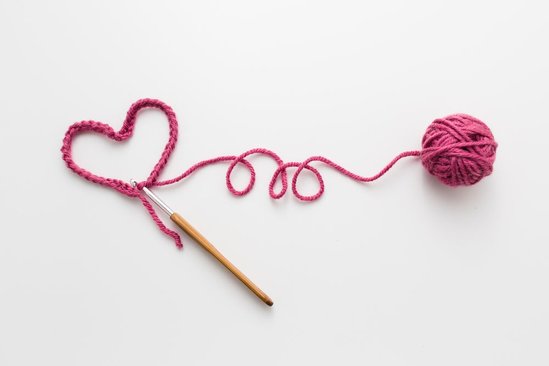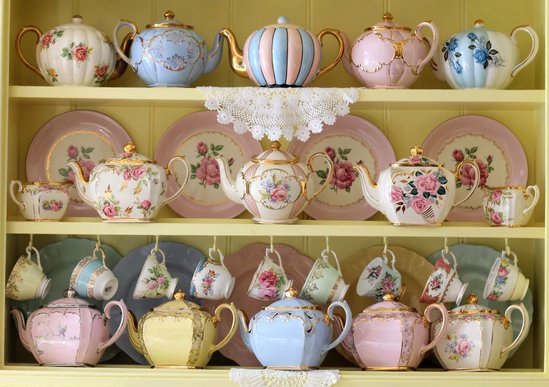We aim to give food for thought as well as inspiring your creativity and providing practical
ideas you can’t wait to implement in your own settings!
We aim to give food for thought as well
as inspiring your creativity and providing practical ideas you can’t wait to implement in your own settings!
Hobbies to Squeeze into a Busy Life
Work can have the detrimental effect of expanding to fill up all our available time and can prey on our minds even when we are not in the workplace. Making time for ourselves can easily take a back seat and we may feel guilty when we spend time doing activities “for the fun of it”.
However tricky it may be, we should all try to prioritise regular slots of time to engage in hobbies or leisure activities as these can prove invaluable in improving our wellbeing: physical, mental or both.
Studies have shown that there are a whole host of benefits when we spend time on an enjoyable pastime. These include (but are not limited to) - lowering stress, improved sleep, increased physical fitness, expanding social networks, and happier moods.
Taking up a hobby doesn’t have to involve spending lots of money; indeed, some can be very inexpensive or even free.
The following suggestions might be useful in sparking ideas for rekindling an old passion or finding a new one!

Outdoor/Physical activities
✓ Walking/rambling/hiking – alone, with a canine companion, or join a local group of likeminded people.
✓ Sports – watching or taking part. Find a local team
to support or join.
✓ Dance – watching or taking part. Dancing as an artistic form or for fitness, e.g., a Zumba class.
✓ Birdwatching – watching from a balcony or in the garden, in a park or the countryside. A pair of binoculars would be beneficial and a “life list” book to jot down a record of sightings.
✓ Fishing – for food or fun. This can be expensive; the cost of gear, permits etc. can creep up.
✓ Camping – a “love it” or “hate it” activity. For first-time campers this is probably best attempted accompanied by someone who has experience to avoid rookie mistakes which can ruin the enjoyment and appeal of the tent lifestyle!
✓ Gardening – pottering about in the garden is a great way to unwind; even if there is only a balcony or windowsill, it is still possible to indulge in planting and pruning.

Language, Learning & Communication activities
✓ Reading – escape into a book, magazine or newspaper, in the garden, on the sofa or tucked in under the covers. A great way to unwind or be whisked away to another place or time.
✓ Writing – invest in a lovely notebook to record thoughts, poems or ideas for that novel hidden within.
✓ Letter writing – hailed as a lost art, writing and receiving real, tangible, snail mail correspondence can be an absolute joy for both the writer and the recipient. Schedule a regular time to write to friends or family, or a pen friend (arranged via secure agency).
✓ Wikipedia editing – specialist knowledge about people, places and events, or a love of research, means that editing and improving wiki pages might be a good choice to undertake in spare time.
✓ Online classes/correspondence courses – these cover an amazingly wide range of subjects, from Ayurvedic Herbalism to Zoology, and a multitude of topics in between. There are also courses which could support learning skills for other new hobbies.
✓ Learning a new language – this can be done in local community colleges, online classes or via an app. This could be studied simply for the love of learning or as preparation for a trip overseas.

Arts & Crafts activities
✓ Photography – this can be an expensive hobby, but it is perfectly accessible with a camera phone and free downloadable software to edit and enhance pictures. Investing in a printer will expand the possibilities for results, e.g., creating collages for decoration, pictures for framing or as unique gifts.
✓ Painting/drawing – join a local group, enroll in a community college course or download online tutorials to learn or improve skills. This could include working with a range of different materials and media and focus on realistic representation, cartoon images, digital art and many more artistic forms.
✓ Calligraphy – invest in some specialist nibbed pens and explore different font styles.
✓ Colouring books – buy a pack of decent colour pens or pencils (water soluble pencils would enable exploring different effects) and a colouring resource. These are often themed, e.g., mindfulness, or can be “dual purpose” such as detachable postcards which can be framed or sent as correspondence. The activity can be very effective due to the calming repetition of shading areas, the challenge of choosing colours and the appreciation of the final outcome.
✓ Woodworking – hand carving or using tools to create artistic or functional pieces.
✓ Sewing – there are many different ways to work with fabrics and threads, either by hand or using a machine. Cross stitch projects – kits can be bought to familiarise beginners with the process. Quilting - kits can be purchased, with bundles of pre-cut “fat quarters”, or fabrics with sentimental value can be used to create memory pieces. It’s a good idea to start small e.g., a cushion cover, or a simple decorative teddy bear. The project doesn’t have to be an overwhelmingly large, ambitious Amish-style comforter. It doesn’t have to have a symmetrical, tessellating pattern; it can be random, or even a decorative applique section to add to an existing cushion cover.

✓ Knitting/crochet – once the skill has been learned, a variety of items can be created, but it is also possible to volunteer to work on small projects e.g., individual squares which are then combined to make blankets for homeless shelters.
✓ Upcycling projects – items which are already owned, or picked up inexpensively at a charity shop, or for free at the local tip or outside houses, can be repurposed or upcycled. With a little sanding, painting, or new handles etc., an item can be given a new lease of life. There are plenty of online tutorials and advice to ensure success in each chosen venture.
✓ Music – listen to or play music. Take lessons, join a local group of singers or musicians. Explore musical genres from different times and places to widen knowledge and preferences.
Other activities
✓ Puzzles, games and jigsaws – on paper or online, word games and number puzzles have been an enduring favourite way to challenge brain cells. Jigsaw puzzles can prove to be alluring and annoyingly addictive! Once complete, they can be put back in the box for another day, donated to charity shops (also a good place to pick them up but beware of missing pieces!) or framed as a permanent reminder of the achievement.
✓ Collecting – fans or figurines, teapots or thimbles, an interest in collecting objects can be fulfilled by searching in flea markets and boot sales or – if prepared to splash a little more cash – auctions, where digging out deals to acquire items for a collection can provide an enjoyable challenge.
✓ Cooking – generally, cooking can become a daily chore, something that needs to be done to provide fuel to keep moving. How about trying out one new recipe a week? Look in a cookbook or investigate recipes online, focusing on unfamiliar or favourite ingredients or styles of cooking, or perhaps plan a series of recipes for a “food journey around the world”, and make a mouthwatering meal to savour. Regardless of whether the meal is a hit or a miss, jot it down in a notebook, recording suggestions for future reference of anything that would be changed if the dish was recreated.

Whilst all hobbies will help you to live in the moment, some activities are specifically designed to promote self-reflection and mindfulness.
✓ Meditation/hypnotherapy - for specific issues or simply to switch off, relax or sleep. There are free or inexpensive downloads available from various sources.
✓ Memory jar/journal/scrapbooking – start a memory jar: collect positive thoughts, ideas and moments of joy. Jot them onto scraps of paper, put them in a jar and set aside a time to read them, e.g., New Year’s Eve. Record thoughts and feelings in a journal. It’s not always a good idea to set this in stone as a daily activity as this can result in the entry becoming forced and a chore. Combine photos, images, quotes, notes etc. in scrapbook pages to create a meaningful visual record of memories to save, and maybe even share.
Whether you choose to pursue a solo activity, one with a partner, or as part of a group, whether it’s a more traditional activity to help you digitally detox, or you wish to embrace newer technologies in your pursuit of free time fun, if at all possible, try to dedicate a specific timeslot for this so that you can regularly reap the benefits of a bit of well-deserved “me time”.
We would love to hear what has worked for you!
